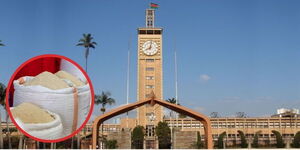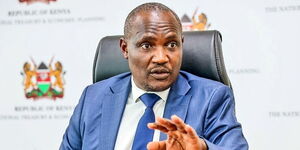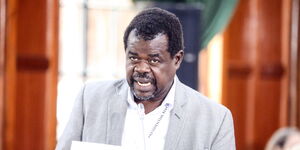As Kenya continues to weigh what to do with the orders signed by US President Donald Trump ordering a freeze on aid funding and imposing reciprocal tariffs on trade, the International Monetary Fund (IMF) has revealed it expects to receive more calls from African nations, including Kenya.
The IMF has revealed that it is expecting an increase in funding support requests in the form of loans from a majority of African countries, Kenya included, as nations seek ways to cushion their citizens from the tariffs.
The international lender's anticipation comes at a time when bond yields in leading economies, including Kenya, have surged due to a selloff of riskier assets, reflecting higher returns demanded by investors in response to increased risk.
The surge in bond yields could increase the government's borrowing costs, straining fiscal budgets and potentially limiting its ability to fund key projects and services. All this at a time the government has openly confessed it has to borrow more to meet budgetary needs.
The Washington-based lender, Director of the African Department Abebe Aemro Selassie, indicated that they would be willing to fund countries like Kenya in an attempt to tone down the impact of Trump's trade orders.
''The poorest and least resilient countries are increasingly turning to institutions like ours. I don’t rule out more African countries seeking support," Aemro told Bloomberg.
Kenya is among the Sub-Saharan African countries that have been affected by Trump's new orders, including the freeze on USAID.
The countries exported Ksh3.76 trillion (USD29 billion) of goods to the US in 2023, making it the region’s largest market after China, the United Arab Emirates, and India.
The disruptive global environment for Africa, comparable to the shock imposed by the Covid-19 pandemic when many frontier-market countries lost access to the international capital market, is already hammering African eurobonds, according to Bloomberg.
Subsequently, the IMF revealed that it had already positioned itself with resources to help low-income countries.
However, the IMF has urged African countries to develop strategies to cushion themselves against these challenges, warning that other nations could follow in Trump's footsteps with similar protectionist measures.
''It’s not just the US; other countries have indicated that they will be less able to provide support in the future. This places an even greater responsibility on African nations to come up with strategies to offset these challenges," the IMF Director added.
The Nairobi Securities Exchange (NSE) has experienced significant volatility following the announcement of new tariffs by Trump on April 7, 2025. The NSE's market capitalisation declined by approximately Ksh37 billion. Major stocks saw declines ranging from 3.2 per cent to 6.8 per cent.












